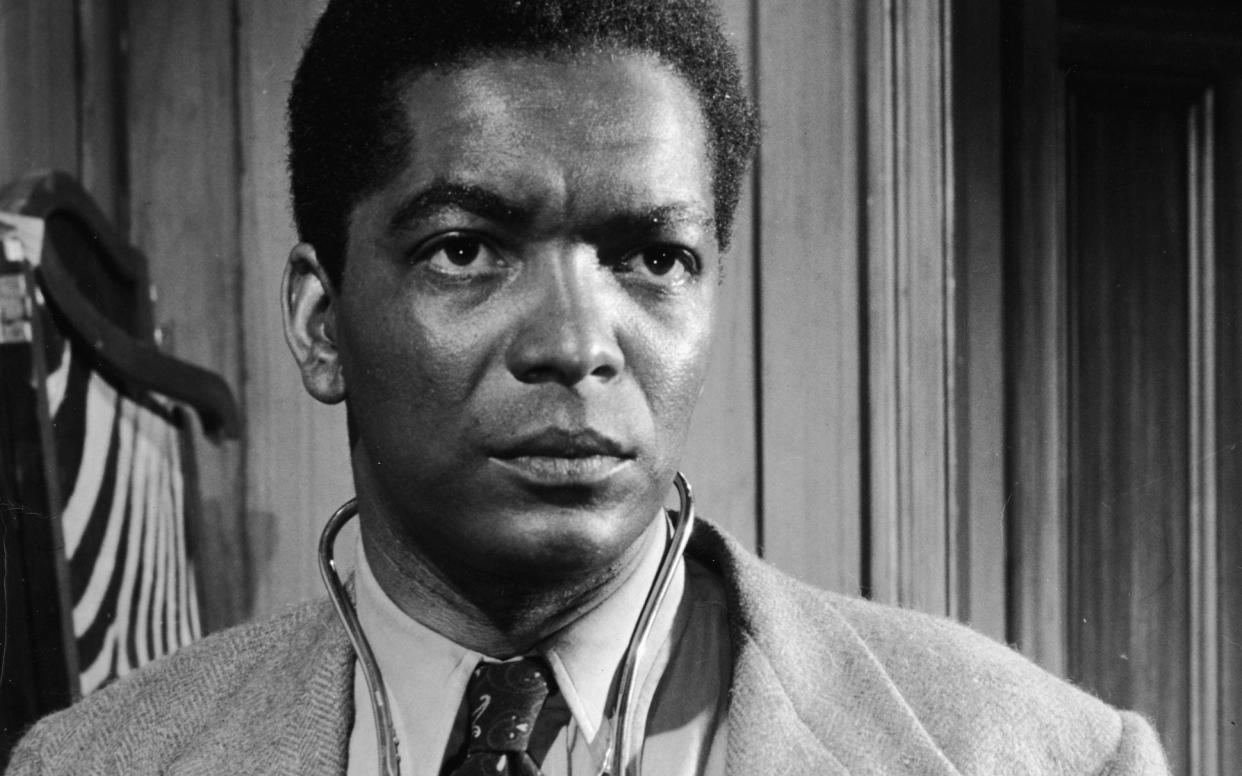Earl Cameron: pioneering Doctor Who and Thunderball actor dies, aged 102

From an acting career that spanned more than seven decades — ranging from Ealing film dramas to a final cameo in Christopher Nolan’s Inception (2010), Earl Cameron will be best remembered for breaking down the colour barrier in British film and television.
The Bermudian-born actor died peacefully yesterday at the age of 102, at home in Kenilworth, Warwickshire.
Paterson Joseph, star of the BBC's recent Noughts and Crosses, was one of many prominent members of the industry paying tribute on social media today, tweeting that Cameron was a "giant man", whose "pioneering shoulders are what my generation of actors stand on". Cameron’s name has been trending on Twitter after an outpouring of affection, including fans of Doctor Who, James Bond (Cameron appeared as Pinder, Bond’s assistant, in Thunderball alongside Sean Connery), The Prisoner and other cult series, through which Cameron became a familiar face on British television in the 1960s.
He was born in 1917 in Pembroke, Bermuda. After arriving in London in 1939 and taking a number of menial jobs and walk-on extra roles in West End productions, Earl Cameron’s breakthrough role was in Basil Dearden’s noir crime drama, Pool of London (1951). It was considered groundbreaking in its employment of a leading, black character, and was the first British on-screen depiction of an interracial romance.
In 1966, he appeared in the Doctor Who story The Tenth Planet. Notable for being the first story to feature both the Cybermen and for the Time Lord to regenerate (in this case William Hartnell into Patrick Troughton), Cameron also made history here by becoming the first black actor to appear as an astronaut on-screen.
"I realized that there were very few parts to be had," Cameron told me when I interviewed him on his 100th birthday. "I didn't kid myself. I'd been in the theatre for at least eight years by the time I did my first film and I knew it was very limited. But I realised also at the time how fortunate I was to get that very first film."
"It's a wonderful part," he said of Pool of London, "and still remains I think the best film I've done. It was fully true to life and very typical of England at that time.”
His next major film was Simba (1955), alongside Dirk Bogarde, concerning the Mau Mau uprising in Kenya. But roles were initially few and far between. “Always I had to wait months before I got another part. Now it has changed to some degree and there are many brilliant black actors."
Seminal BBC television dramas exploring racism followed, including The Dark Man (1960), in which he played a taxi driver facing prejudice in his workplace. Another role of which he was particularly proud was playing the King of Abyssinia who offered safe haven to early Muslims in The Message (1976), the film biopic of the Prophet Muhammad. The British Film Institute described his performance as a "scene-stealing cameo".

Very occasionally Cameron would turn down a role, if he felt the black character was not depicted with sufficient dignity. In a statement announcing his death, Cameron’s children said: “As an artist and as an actor he refused to take roles that demeaned or stereotyped the character of people of colour. He was truly a man who stood by his moral principles and was inspirational.”
“There was a period when black actors tended to get the villain parts,” Cameron told me. “But I often got sympathetic character roles. Perhaps I have a sympathetic look about me.” Certainly, often playing the sensitive outsider, Cameron had a warm and attractive presence, with pellucid eyes, a hearty laugh, and a rich, velvety voice that endeared him to audiences, both on screen and through fan conventions and other public appearances.
Cameron’s personal spiritual search was satisfied in the early 1960s when he encountered, and joined, the Baha’i Faith. Its message of the unity of religion and the oneness of humanity had an immediate appeal to the actor. In a dramatic move of another kind, he uprooted his family to the Solomon Islands for 15 years to help develop a Baha’i community there, while managing an ice cream business.
Returning to the UK when his first wife Audrey became ill, his acting career resumed. At the age of 87, he was cast as an African dictator in the thriller The Interpreter, starring Nicole Kidman. In the film’s climax, Cameron’s character addresses the UN General Assembly, an experience that reinforced his strong sense of justice and global cooperation. “There I was," he said, "standing at the lectern in front of 2,000 extras playing all the ambassadors. Seeing the names of all the countries on the desks in front of me, I got a real sense of the importance of the UN. The world is desperate for peace and there's no other way it can go but towards greater cooperation at a global level.”
Later television appearances included the 1996 TV adaptation of Neil Gaiman’s Neverwhere, Waking the Dead and EastEnders, and in 2006, he had a touching cameo role in The Queen, painting Helen Mirren’s portrait at the beginning of the film. He was awarded a CBE in the 2009 New Year Honours list, and an honorary doctorate from the University of Warwick in 2013. He was also lauded in Bermuda where the main theatre in Hamilton was renamed The Earl Cameron Theater in 2012.
To the end of his long and eventful life, Earl Cameron remained alert and charming, becoming a familiar face in Kenilworth where he and his second wife Barbara made many friends. His annual birthday party was a much-anticipated event in their social calendar, attended by friends from all eras of Cameron’s long life. To the end, he was a magnetic presence, who showed great warmth and encouragement to those he encountered. And he was still talking about getting more acting work, well past his 100th birthday.